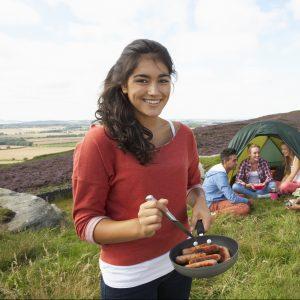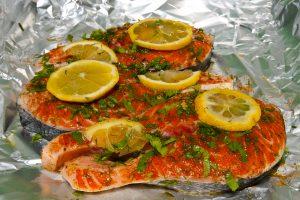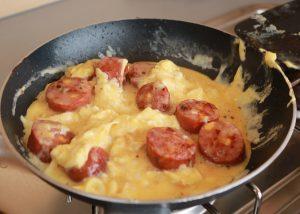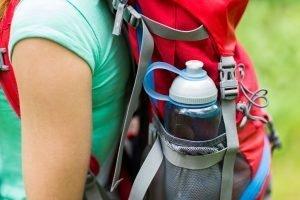
Once spring and summer are upon us, or perhaps even year-round for those in warmer climates, camping becomes a common and much-anticipated activity. While friends and family may be grabbing hamburger buns, supplies for s'mores, and bags of chips, those on a Ketogenic diet will need to spend time planning and prepare in advance.
Depending on how you plan to camp you may have a small grill, a propane stove, or you may find yourself cooking over the campfire. Storage is another factor. Are you tent camping, RV camping, or hiking in? When done right, food options are endless even for those of us on keto. Here are 5 tips to help you plan for your next camping trip.
Plan Snacks
Snacks are important when camping to keep your energy level up especially if you plan to do activities such as hiking or kayaking. Yes, snacking tends to be frowned upon when on Keto, however, when active a little extra fuel may be necessary. What should be top of mind when planning keto snacks for a camping trip?
- Be mindful of carbs as well as serving size. You don't want to accidentally throw yourself out of ketosis.
- Stick with omega-3 and monounsaturated fats. Not only are these heart-healthy, but they're filling as well.
- High protein snacks provide energy, fueling you for whatever activities you may have in mind.
TIP#1: Jerky and nuts are a great source of protein and energy, not to mention the packaging is small and light. These snacks are perfect to toss into a backpack before heading off into the woods for a day hike.
Prep Food in Advance

Preparing and cooking food outside can be complicated without access to many commonly used kitchen tools. Additionally, if bad weather hits you'll want to cook your meal as quickly as possible in order to take cover.
Taking time to prepare either the day before or even the morning of your camping trip will make things much easier. This also allows you to better take into account the food and ingredients used in your food to ensure it is keto-friendly. Here are steps that can be taken to prepare food for both meals and snacks:
- Wash and cut nutritious, low-carb veggies like celery, broccoli, and cucumber.
- Make foil packet meals that can be cooked over the fire or in a skillet.
- Gather any low carb condiments like spinach dip, heavy cream, mustard, and mayo to ensure they're not forgotten.
TIP #2: Foil can be your best friend when heading out on a camping trip. You can both store and cook food in aluminum foil.
Start Each Day with a Hearty Meal

Camping tends to be full of activities, so starting the morning off strong with a solid meal is important. This is especially necessary when in your first few weeks of keto as your body adjusts from burning carbs to burning fat. Not eating enough when on keto, especially if active, can cause the "keto flu." Here are a few things to consider when planning your morning meal:
- Eggs cooked just about any style make for a quick and easy breakfast.
- Include high-fat foods in your meal to keep you full longer.
- Breakfast doesn't necessarily mean "breakfast." Be creative with the limited food supply you brought along. The more you use up, the less you have to bring home.
TIP#3: Eggs are an easy, protein filled option and can be cooked on a propane stove or over the campfire. Toss in brats or bacon and top with cheese to make it a hearty scramble.
Stay Hydrated

It is important to stay well-hydrated while on keto because your body is no longer storing carbs which retain water. Not drinking enough water can cause headaches, fatigue, and make it hard to concentrate.
While enjoying the great outdoors you want to feel your best to enjoy the fresh air and fun. How do you ensure to bring enough water along?
- Consider how you'll be using your water. Will you need to use it to brush teeth or wash utensils? Or will water only be needed for drinking?
- How are you getting to your campsite? Is it a hike-in or a drive-up spot? You won't want to lug a case or multiple jugs of water if you have a hike ahead of you.
- Will another water source be available? Is it safe to drink?
TIP #4: If another water source is not an option, plan to take more than you need. Chances are you'll drink more water than you think you will, particularly if the weather is hot.
Pack Light
Loading and unloading supplies may be the most dreaded part of any camping trip. You can save space in the cooler and car by cutting down on some supplies you may think you need by using other alternatives. How can you make the most of your limited storage space?
- Well-sealed, reusable containers will prevent leaks and are easy to store in the cooler.
- Using foil for storing and cooking food will cut down on the need to bring cast iron pans or skillets.
- Paper plates are lighter and easier to store than plastic. When done, you can even use the plates to help start the campfire.
TIP #5: A small reusable egg carton container is easy to store in your cooler or camper fridge without fear of broken eggs. As a low-budget hack, you can cut an egg carton in half to bring along just enough eggs for a weekend trip.
Now that you're prepared and ready to go, you can hit the road. Happy Camping!
